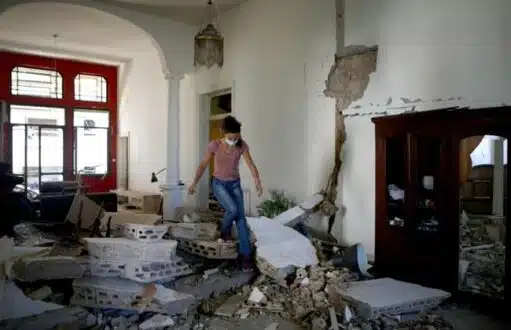In August 2020, the catastrophic explosion at Beirut’s port compounded Lebanon’s public health crisis by halting virus monitoring efforts amid a deadly second wave of COVID-19. The blast, one of the largest non-nuclear explosions in history, caused widespread devastation, killing over 200 people, injuring thousands, and leaving around 300,000 homeless. The destruction overwhelmed Beirut’s already struggling healthcare system, which was grappling with a surge in COVID-19 cases.
Before the explosion, Lebanon’s healthcare system was under severe strain due to the pandemic and the country’s ongoing economic crisis. The explosion severely damaged several hospitals, further limiting the capacity to treat COVID-19 patients and disrupting ongoing virus monitoring and testing efforts. Medical facilities were overwhelmed with blast casualties, leading to a temporary suspension of routine health services, including COVID-19 testing and monitoring.
The government declared a two-week state of emergency, focusing resources on disaster response and recovery. The immediate need to address the fallout from the explosion diverted attention and resources from the pandemic, exacerbating the spread of the virus. The suspension of virus monitoring activities created significant gaps in data, hindering efforts to track and control the outbreak effectively.
In the weeks following the explosion, there was a significant increase in COVID-19 cases. The International Rescue Committee reported a 220% rise in infections, highlighting the critical need for international assistance to help Lebanon manage both the pandemic and the aftermath of the explosion.
The Beirut blast underscored the fragility of Lebanon’s healthcare system and the urgent need for comprehensive reforms and international support to rebuild and enhance its capacity to handle multiple crises simultaneously.


